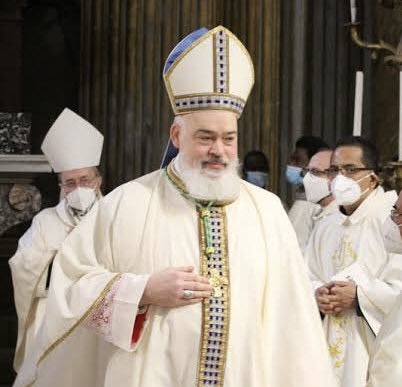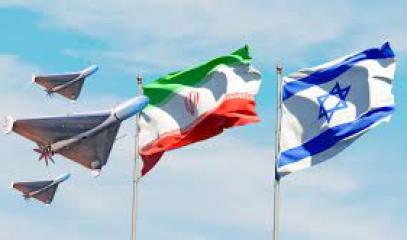Cardinal of Tehran: beyond the ‘fragile’ ceasefire, peace requires ‘common and shared responsibility’
In his latest reflection in his “war diary”, Archbishop Mathieu turns to the ceasefire in force since yesterday between Israel and Iran, after the US intervention. The '12-day war' has changed “the perception of the world”. He is grateful for the sense of “the closeness” expressed “in many ways”. Yet, “We are still at the right of self-defence,” he writes. And “if we think that caring for our flowers and plants is all about weeding, we risk making the soil sterile.” Transmitting “love and not hate” is a challenge.
Tehran (AsiaNews) – Cardinal Dominique Joseph Mathieu, Latin Archbishop of Tehran-Ispahan, sent AsiaNews his third reflection about the war Israel launched against Iran with direct US intervention, first military and then diplomatic.
He writes that “the perception of the world has changed. From near and far, all kinds of people have expressed their closeness in many ways. In this trial, we strongly felt a sincere communion of spirit, which gave us the strength to persevere despite doubts.”
After 24 hours, the "fragile" ceasefire imposed by the White House seems to be holding, but the wounds of the "12-day war" remain, as do the critical issues related to a ceasefire based "on deterrence and not on agreements between the belligerents.”
The prelate still hopes for a future that is truly peaceful. “Only when the end of hostilities was confirmed, each side with its own interpretation, did we catch our breath, hoping to return to the normal pace of daily life”. For Card Mathieu, “To get there, we must nurture the spirit by purifying our heart hearts” because only through an “active commitment in the present world, [. . .] prepares a future and distant reality of peace, justice and communion with God.”
Below is the reflection of Card Mathieu sent to AsiaNews:
The night between Monday and Tuesday (23 and 24 June) was terrifying, with explosions and intense defence activity. In the early hours of Tuesday, the intensity reached its peak, as social media announced that a ceasefire would come into effect. It is not surprising that the logic of war pushes one to give one’s all before the agreed time, even if it is different for the two parties involved.
When the guns fell silent at midmorning, peace invaded us despite a strong smell of burning still lingering in the air and the 360-degree horizon was filled with smoke. This was short-lived, as the announcement of an attack and retaliation made one fear the worst.
Only when the end of hostilities was confirmed, each side with its own interpretation, did we catch our breath, hoping to return to the normal pace of daily life, which the night between Tuesday and Wednesday offered us, even if the ear, despite sleep, remained attentive to the slightest noise, now synonymous with war. Public transit is now crowded, activity has resumed, and the worries of daily life are again the order of the day.
Yet the perception of the world has changed. From near and far, all kinds of people have expressed their closeness in many ways. In the trial, we strongly felt a sincere communion of spirit, which gave us the strength to persevere despite the doubts.
We placed ourselves before the Blessed Sacrament to lay at the feet of Jesus the only just battle, that for peace and justice. Even if sleep was heavy, we kept vigil with him for peace here and in the Holy Land, and in every part of the world, for our brothers and sisters who have been living this tragedy for far too long, and too often without the most basic necessities. This must never become a habit.
The ceasefire, which ended the “12-Day War”, is extremely fragile, as it is currently based on deterrence and not on agreements between the belligerents. We are far from mutual respect and mutual trust. There is no talk of reconciliation in this phase. We are still at the right of self-defence, even in a preventive way.
If we think that caring for our flowers and plants is all about weeding, we risk making the soil sterile; conversely, if we focus on the beauty and scent of the plant, then it is with love that we will also take care of its surroundings. But when we pretend to take care of the garden of a neighbour, even a distant one, so that its seeds do not become invasive, then conflict is never far away. We must arrive at a common strategy.
This is rooted in Sacred Scripture. Taking care of the garden reflects humanity’s role as the steward of divine creation. We have the responsibility to care for the earth and make it productive. It is therefore a question of protecting, preserving and supervising creation, not of destroying it. For it does not belong to us, but has been entrusted to our care. This responsibility extends to future generations and requires a common and shared responsibility on our part, even amid the diversity of the means implemented.
What we want to transmit today and tomorrow is love and not hate. To get there, we must nurture the spirit by purifying our heart and align it with God’s will. Saint Paulinus of Nola said: “So when you are in the field and are looking at your farm, consider that you too are Christ's field and devote attention to yourself as you do to your field.”
Such an active commitment in the present world, where it is beautiful to live for everyone, prepares a future and distant reality of peace, justice and communion with God.
* Latin Archbishop of Tehran-Ispahan
READ HERE THE TWO REFLECTIONS BY CARDINAL MATHIEU PUBLISHED BY ASIANEWS IN RECENT DAYS
Cardinal of Tehran: Pray for talks to break down “walls and hostility”
Cardinal of Tehran: “worst fears” with escalation, no peace “without justice”
22/01/2021 13:03
18/02/2022 08:23








.png)










